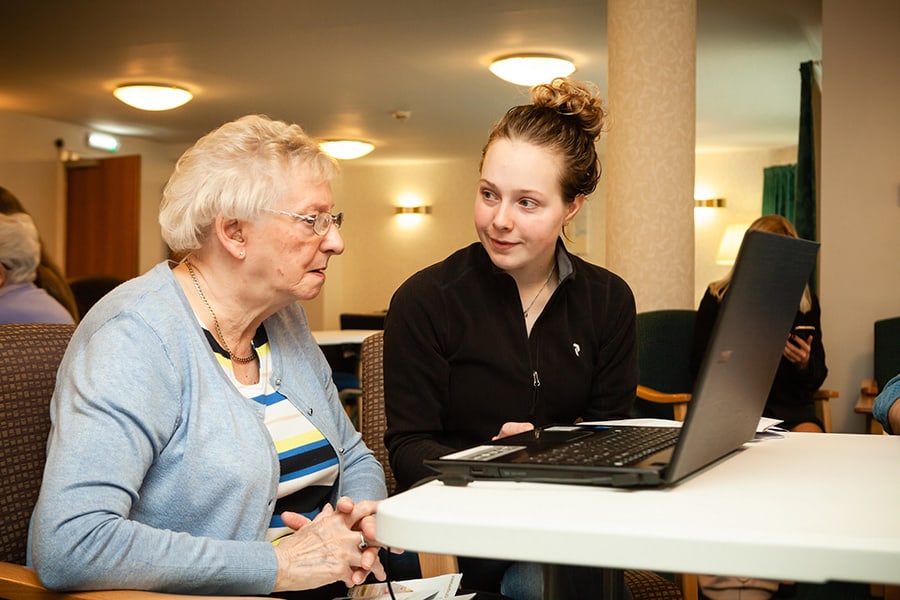Six housing providers awarded £440k to co-produce tech services with older residents

Bield Housing & Care, Haringey Council, Platform Housing Group, Pobl Group, Southend Care, and Wiltshire Council will each receive between £65,000-£75,000 in funding, so they can involve their older residents in shaping new digital services.
The funding is part of the pioneering TAPPI project (Technology for our Ageing Population: Panel for Innovation) that aims to improve the way technology is used in housing and care for older people through ten practical principles.
Led by the Housing Learning and Improvement Network (Housing LIN), the TEC Services Association (TSA), and funded by the Dunhill Medical Trust, the TAPPI project will co-produce new tech tools with people who have lived experience over a 12-15-month period.
Professor Roy Sandbach OBE, TAPPI Chair and former Director of the National Innovation Centre for Ageing at Newcastle University, commented: “The TAPPI principles will only be of value if they are applied in practice, and I’m thrilled that many housing and care organisations applied to become TAPPI testbeds.
“Those chosen will provide insights from a range of settings and, most importantly, will put users at the heart of this work. We’ll use the TAPPI principles and a co-production approach to develop digital services that address real-life problems of older people. I’m very excited to work with our six new testbed sites.”
Each housing organisation will engage a diverse range of older people to test different devices, apps, and systems across a variety of housing settings. Residents will be given shared responsibility, alongside staff, to make decisions about which digital support services to develop.
It is hoped that this approach will help Bield Housing & Care, Haringey Council, Platform Housing Group, Pobl Group, Southend Care and Wiltshire Council to create digital services across England, Scotland and Wales that are determined by their residents, alongside the professionals and staff that support them.
To facilitate this process, the TAPPI project has appointed Co-production Works, a specialist consultancy that supports organisations to work in co-production with people who use services. Co-production Works will train residents and staff and pay participants for their time.
The Cambridge Centre for Housing and Planning Research (CCHPR) – part of the University of Cambridge – has been appointed to evaluate the TAPPI project. Researchers will work with the six housing providers to quantify benefits from their work and share what they have learnt with the wider housing and care sector.
Stephen Unsworth, Director of Operations at Southend Care, said: “This is a golden opportunity to collaborate with our technology partner Amba, Southend City Council and tenants to test the impact of deploying technology augmented care in people’s homes. This important work will determine how people’s independence can be maintained or enhanced and, in turn, support Southend Care’s progress in becoming a technology-enabled company.”
Cllr Jane Davies, Cabinet Member for Adult Social Care, SEND, transition and inclusion at Wiltshire Council, added: “It is important that older people who need support are given the opportunity to live their lives fully and independently.
“Harnessing the benefits of modern technology so they can enjoy this independence for longer is going to be a key part of all our plans for the future. Testing this new technology at one of our extra care homes is an exciting development which will help us understand more of how we can use technology enabled care to help people for the future.”

